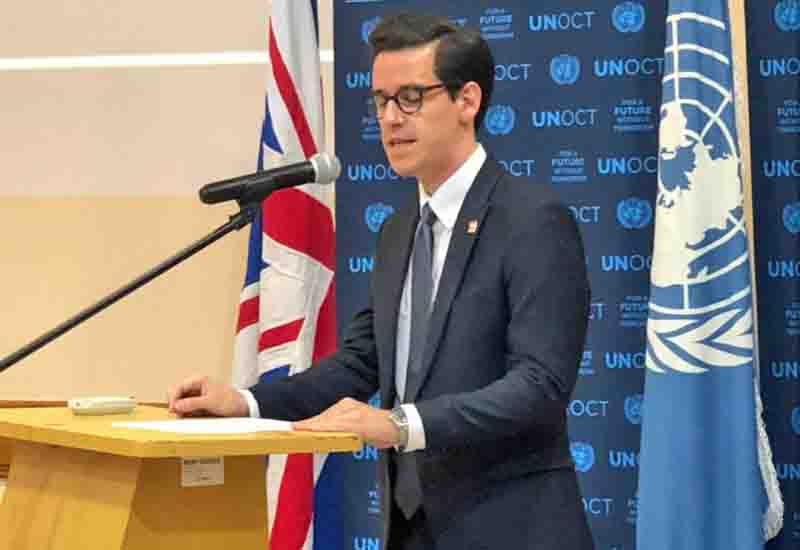The United Nations Office of Counter-Terrorism (UNOCT), has started a three-week Counter Kidnap Training for selected security and enforcement officers in the West African Sub-region.
The training in collaboration with the National Crime Agency of the United Kingdom and the Federal Office of Police, Switzerland is under the Kidnap for Ramson Project (KFR).
The KFR was launched in February 2021, led by UNOCT in partnership with UNODC, with funding and expertise provided by UK and Northern Ireland and the Federal Office of Police of Switzerland.
Madam Harriet Thompson, British High Commissioner to Ghana, in a statement said, “kidnap for ransom causes untold misery and has a life-changing impact on victims and their families.”
It aims to enhance the capacities of Member States to prevent, investigate and counter kidnap for ransom through legal, institutional and operational technical assistance.
The training also seeks to raise awareness of ways to support victims of kidnapping and main-stream victims’ voices, including as counter terrorist narratives, while ensuring due process, fair trial and respect for human rights.
She said, “Through this new training, the UK is proud to work and learn alongside our partners both here in Ghana and across West Africa to truly stamp out this dreadful crime.”
Mr Tim Segessemann, Attaché at the Embassy of Switzerland in Ghana, who spoke on behalf of the Ambassador of Switzerland to Ghana, Mr Phillip Stalder, said, “political fragility and armed conflicts in the region are on the rise.”
He said despite the successes chalked in the region’s democratic and economic development and civil society participation, it was clear that presence of armed groups and their links to international terrorism presented a threat to West African States.
Mr Segessemann said their experts from the Swiss Federal Office of Police, would focus on helping the trainees develop their communication skills whilst ensuring good practices and proven international standards.
The training started on April 25 and ends May 12, with the first week focusing on kidnapping management course, to be handled by the National Crime Agency.
The course has been designed to provide senior investigators the understanding to conduct a kidnap investigation.
Similarly, the second and third weeks of the training would be centered on hostage negotiation courses. The course had also been designed to equip trainees with negotiation skills.
Both courses had been in accordance with good practice, proven international standards and UNOCT Manual of Guidance for Countering Kidnapping and Extortion.
In all, 25 participants were selected from Ghana, Niger and Togo and would be trained by experts from the National Crime Agency, United Kingdom and the Swiss Federal Police, Switzerland.
Ashantibiz




